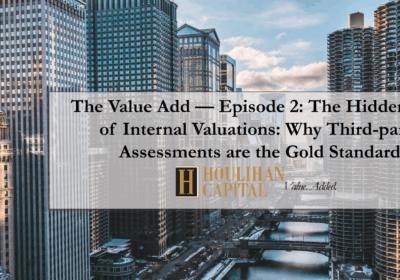It is becoming increasingly clear that the United States Securities and Exchange Commission (“SEC”) is accelerating its investigative efforts in the hedge fund and private equity space.
During early 2010, the SEC created five new special investigative units, including the Asset Management Unit (“AMU”). The AMU was established to seek examination into the practices and procedures of investment companies, mutual funds, private equity firms, hedge funds and investment advisors. Since the establishment of the AMU, the SEC’s Division of Enforcement has brought over 100 cases against hedge fund managers, the last example being the enforcement action in December 2012 against eight former fund directors for material misstatements of net asset values.
More recently, the SEC outlined some of its current asset management enforcement priorities in two separate speeches by Bruce Karpati, Chief of the SEC’s AMU. Mr. Karpati noted the asset management industry has shown significant growth in the last decade, and the increasing complexity of underlying investments in combination with recent market events underline the need for continued increased monitoring of the industry.
The SEC believes the hedge fund industry is particularly vulnerable to misstatements due to certain aspects of its operating model. As the main sources of compensation for a hedge fund manager include an annual management fee and carried interest, an incentive could exist to overvalue assets to boost compensation. As a result, Mr. Karpati noted the AMU is focused on detecting weak valuation practices, including lax valuation committees, the use of side pockets to conceal losing illiquid positions and the failure to follow a fund’s stated valuation procedures.
Mr. Karpati also pointed out that the AMU recently launched a Private Equity Initiative to identify private equity funds that are at a higher risk for certain specific deceptive behavior. One of the goals of the initiative is to search for private equity advisors that may be improperly failing to liquidate assets or have been misrepresenting the value of their holdings to investors. Mr. Karpati noted the widely quoted example of “zombie” funds, which are funds that have surpassed their predetermined fund life, hold illiquid or severely deteriorated assets, and yet continue to charge management fees on assets without any objective of returning investor capital. Managers of zombie funds may be conflicted – they have an incentive to maximize their own revenue using the assets they have rather than finding an optimal solution for the fund’s investors to monetize the illiquid assets. One suggested way of preventing this practice is to have the fair value of the fund’s holdings independently verified by a third party.
Mr. Karpati further emphasized the SEC’s focus on valuation practices by providing a few recent examples of SEC enforcement cases where:
An alternative investment manager allegedly inflated the values of certain illiquid assets.
A business development company purportedly overstated the value of certain debt securities and CLO’s held in an investment portfolio.
An investment advisor falsely claimed it employed a robust valuation procedure.
A fund manager inflated the fund’s returns and net asset value by manipulating its supposedly independent valuation process.
A hedge fund manager overvalued illiquid assets in a side pocket and extracted excessive management fees based on the misstated valuations.
Furthermore, Mr. Karpati indicated that valuations become even more important during the period of fund raising. One type of manager misconduct the SEC says it encounters involves overstating asset values during a fund marketing period and writing them down soon after the fund raising period closes. While the moment when an investment is monetized represents the only true valuation indication, there is a potential incentive to manipulate values prior to such an event. Therefore, Mr. Karpati said, “interim valuations do, in fact, matter”.
If the creation of the AMU in 2010 did not already send a message to the industry that the SEC will increasingly scrutinize the hedge fund and private equity space, the numerous examples of enforcement cases in combination with Mr. Karpati’s comments should serve as a fair warning. Mr. Karpati did offer some advice regarding suggested best practices for fund executives to avoid SEC scrutiny including:
Make reasonable efforts to detect and prevent violations and ensure robust supervision of employees to avoid conflicts of interest. For example, portfolio managers should not be responsible for valuing the fund’s assets.
Implement and maintain a compliance program. For example, a firm should test and verify its valuation procedures periodically, especially for complex and illiquid securities.
Be prepared for exam inquiries by the SEC – enforcement is likely to increase.
Learn about the operation of the firm’s portfolio and use that knowledge to ensure that valuations are fairly represented and that investors are accurately informed of the status of their investment.
For more information on independent third party valuation services, please visit www.houlihancapital.com or contact Paul Clark (pclark@houlihancapital.com) at 312-450-8656.
Houlihan Capital is a leading, solutions-driven valuation, financial advisory and boutique investment banking firm committed to delivering superior client value and thought leadership in an ever-changing landscape. The firm has extensive experience in providing objective, independent and defensible opinions of value that meet accounting and regulatory requirements. Our clients include some of the largest asset managers around the world, and private equity funds, hedge fund advisors, fund administrators, and other asset management firms benefit from Houlihan Capital’s comprehensive valuation and financial advisory services. Houlihan Capital is a Financial Industry Regulatory Authority (FINRA) and SIPC member, committed to the highest levels of professional ethics and standards.



